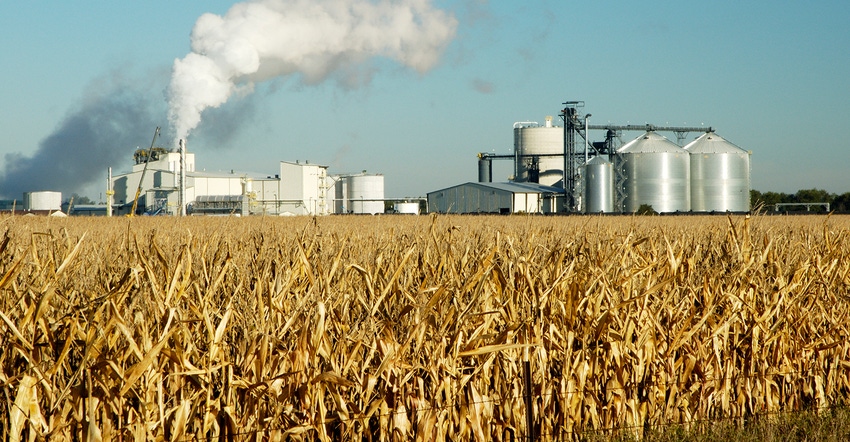
Has the ethanol industry hit a plateau in production? Not according to Geoff Cooper. In fact, the Renewable Fuels Association senior vice president says that 2016 was a record year for U.S. ethanol production.
"We hear a lot of frustration from our members," Cooper says. "Corn growers we work with say it feels like we hit a plateau. It feels like we have flattened out." He admits that several years ago, the industry did look like it hit a wall. "But blending this past year has been a record year for ethanol production."

Geoff Cooper, RFA senior vice president

Cooper told Missouri Corn Growers during a regional meeting that the industry has come a long way from the 1980s. In 1980 there were just 175 million gallons produced in the U.S. Cooper estimates that for 2016, the ethanol industry will have produced 15.3 billion gallons. "We are growing as an industry and continue to expand," he notes. "We are de-bottlenecking and cranking more ethanol out of every bushel of corn."
Fueling demand
So what is fueling ethanol demand? Cooper points to four key areas where demand for ethanol is getting a boost.
• Low oil prices. Relatively low oil prices led to record gasoline consumption, which in turn, Cooper says, created greater demand for E10. Low prices created more room to blend ethanol.
• Renewable Fuel Standard (RFS). Modest growth in E85 and E15 consumption, driven by blend economics and RFS requirements, spurred demand. "The economics of ethanol was not too bad," Cooper says. "With low gas and oil prices, ethanol was very competitive in the marketplace."
• Exports. Last year, the U.S. had its second-highest export volume on record. Cooper points out that 15 years ago, the U.S. was a net importer of ethanol, and most of it came from Brazil and was sugarcane ethanol. However, the pendulum has swung the other direction, and now the U.S. is a net exporter of ethanol. "The final numbers are not yet in, but it looks on track to be at an all-time high — just a little less than 2011." Brazil is experiencing high sugar prices, making sugarcane ethanol less competitive for many countries. The U.S. ethanol industry is filling the gap.
• Environment. Countries like China, India and Mexico are all focused on improving air quality. Cooper says the governments in these counties view ethanol as one tool that can help mitigate those problems.
Where is ethanol going?
Canada has been the United States' top market for ethanol. However, this past year, Brazil saw a jump in ethanol to rival that of Canada.
If the numbers hold for 2016, Cooper expects the top three importers of U.S. ethanol to include Canada (25%), Brazil (24%) and China (19%).
However, he points out the export market to China may not be as strong in 2017, if the country "slaps a 30% tariff on ethanol like it did our DDGs [dried distillers grains]." If that happens, then there is "a lot of ethanol that we were expecting to go to China that now has to go somewhere else."
About the Author(s)
You May Also Like






